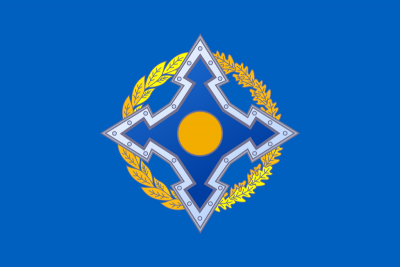Armenia and Russia Are Sending Each Other Strong Signals Through the CSTO

OneWorld is publishing the original English-language version of Andrew Korybko’s analysis on the titular topic that was first released in Russian at the Moscow-Baku information portal.
***
Armenia’s decision to skip next week’s CSTO drills in Belarus and the bloc’s subsequently announced postponement of planned exercises in the South Caucasus country later this month (purportedly decided weeks ago) can be interpreted as Yerevan and Moscow sending strong signals to one another over the Nagorno-Karabakh Continuation War.
Russia defied the Alt-Media Community‘s exaggerated expectations of its military support to Armenia by thus far refusing to intervene in defense of its continued illegal occupation of universally recognized Azerbaijani territory. Even Armenian Prime Minister Pashinyan was forced to admit last week that “Moscow is formally and legally a strategic partner of Armenia, but the fact is that now Moscow is totally neutral. Russia is a member of the Minsk Group co-chairmanship, and, to be honest, it is her duty to be neutral.” This is still the case despite “Armenia Going For Broke By Attacking Azerbaijan’s Ganja”, its second largest city, over the weekend in a desperate attempt to provoke a similarly devastating counterstrike against a target within its internationally recognized territory in order to prompt Russia’s possible military intervention through the CSTO’s mutual defense clause. The “security dilemma” that Armenia is provoking with its Russian ally has now led to them sending strong signals to one another through their latest decisions related to that bloc.
Armenia first announced that it’ll skip next week’s CSTO drills in Belarus due to its ongoing hostilities with Azerbaijan, which is seemingly plausible since it’s a tacit acknowledgement of how badly it’s being defeated by its foe that it can’t spare any extra soldiers but could also be interpreted as a passive-aggressive decision intended to display Yerevan’s disagreement with the bloc’s refusal to intervene in its support. Shortly after Tuesday’s decision, the CSTO then said that it’ll postpone its planned exercises in the South Caucasus country later this month (purportedly decided weeks ago), which can be interpreted as Moscow not wanting to do anything to provoke Baku or encourage more aggression from Yerevan. That doesn’t mean that Russia wouldn’t seriously consider intervening in Armenia’s support in the highly unlikely scenario of a joint Azerbaijani-Turkish land invasion of their target’s internationally recognized borders, but just that it won’t let the CSTO be exploited by one of its members as bait for drawing the Eurasian Great Power into what might turn out to be a larger war.
Expanding upon this insight, it can be said that the CSTO has yet to become a player in this conflict and that its leadership clearly doesn’t want it to ever become one either. This contrasts with Armenia’s false expectations of the alliance and might compel it to reach out to the West (especially France) for military support instead. That doesn’t mean that it’ll do so publicly, let alone at this time, or that it’ll succeed if or when it does, but just that the scenario remains on the table considering Yerevan’s disappointment with the bloc. From the Russian perspective, any Armenian outreaches to security partners other than those within the CSTO pose a threat to its interests, which includes its military base in the country but also the unity of its military alliance. For this reason, Russia might try to “diplomatically appease” Armenia as best as possible without provoking Azerbaijan or contradicting Moscow’s strict support of international law, perhaps by issuing some ambiguous statements that could be interpreted either way by those who want to. Still, by not intervening in its support, ties will chill.
While it’s best for Russia to seek equally strategic relations with all partners, the author recently argued the “Five Ways That An Azerbaijani Victory Over Armenia Would Advance Russian Interests”, so a “zero-sum” reading of the situation would suggest that all might not be lost if Russia “loses” Armenia like some might misleadingly portray it has having done. In reality, any worsening of their relations as a result of the “security dilemma” that Armenia provoked would be Yerevan’s fault taken on its own initiative as opposed to Moscow’s since the Eurasian Great Power’s “junior partner” should have known that its “big brother” couldn’t be so easily tricked into a dangerous game of CSTO-NATO brinkmanship with Azerbaijan’s Turkish ally over a territory that no UN member recognizes as other than Azerbaijani land. The best-case scenario is that Armenia finally awakens to the disaster that its leadership, foreign partners, and ill-intended diaspora are responsible for creating, but it might just double down on its aggression out of desperation until it finally loses the war.
*
Note to readers: please click the share buttons above or below. Forward this article to your email lists. Crosspost on your blog site, internet forums. etc.
The English version of this article was originally published on OneWorld.
The Russian version was published at the Moscow-Baku information portal under the title “Американский эксперт Эндрю Корыбко: Армения и Россия шлют друг другу сигналы через ОДКБ”.
Andrew Korybko is an American Moscow-based political analyst specializing in the relationship between the US strategy in Afro-Eurasia, China’s One Belt One Road global vision of New Silk Road connectivity, and Hybrid Warfare. He is a frequent contributor to Global Research.
Featured image is from OneWorld

